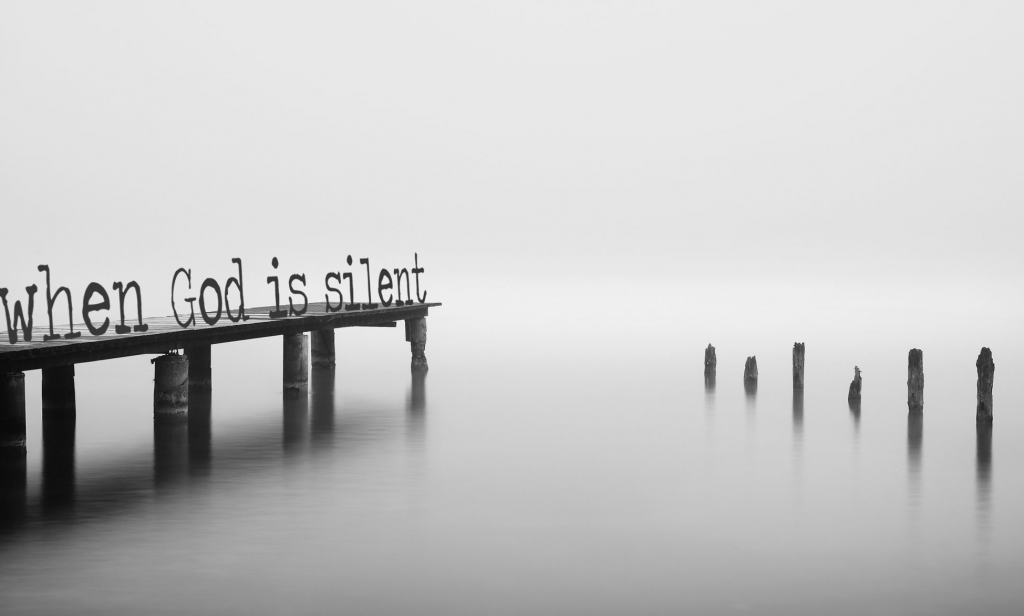(This is part two of my blog on Job. You can read part one by clicking here.)
Last week, I mentioned that two great questions get raised by Job: Why has this happened to me? and Why would God allow this? In the second text assigned for reading in the lectionary this month, Job voices his pain when those questions go unanswered by God.
In Job 23:1-17, Job cries out that God is not answering his prayers, saying, "If I go forward, he is not there; or backward, I cannot perceive him; on the left he hides, and I cannot behold him; I turn to the right, but I cannot see him" (vv. 8-9). These verses (echoed many other places in the book) capture why so many people read and study this book.
Job asks one of the profound questions of faith: Where is God when we suffer? And why does it so often feel like God is distant in times of pain?
These are questions that I am asked all the time. They are questions that I ask all the time.
They are questions that deserve careful examination because they are a part of everyone's lived experience. We all are afflicted at times with loss, pain, suffering, and disease. We will all likely think things can't possibly get worse only to be proven wrong.
Because they are so universal, they are questions that have led to much spilled ink over the millennia (including the ink originally spilled to write Job) and it would be impossible to settle them in one blog post. (Job alone spends 42 chapters trying to answer these questions and still leaves them partly unanswered.) But there are a few points we can draw from the Bible in and around Job that help shape how we ask the question today.
When God Speaks, It's Rare
When we read the Bible, it seems as though God is answering prayers and saving the day left and right. God has prophets and priests and rulers hearing God's word and doing miracles all over the place. It can lead us to wonder why God has stopped speaking and acting as much today.
But if we look more closely, we see that many of the stories of the Bible the highlights in a long timeline, kind of like SportsCenter showing all the runs from a three hour baseball game in thirty seconds. In fact, there are long periods of silence from God within the Bible. The Israelites are enslaved in Egypt for generations; the period of Judges has years of suffering in between a few heroic battles; and there are four hundred years between the Old and New Testaments.
God's silence seems to be the rule more than the exception for much of the Old Testament. Why that may be is hard to say, but it is clear that God does not speak out of burning bushes to every person in trouble, then or now.
So does that mean that God just doesn't care? Does God ignore us most of the time? The Bible says "no," because...
When God Speaks, It's Hopeful
When God does speak in the Bible, it's often to offer comfort and hope. (God's response to Job doesn't really, but I'll get to that next week.) God makes it clear that he doesn't intend suffering for those who trust in God and promises that there will be a time when all we be right. Even if we don't experience justice or an end to suffering in this life, God's final word to us is hope.
In the Bible, God shows care for us in the midst of our suffering because God often sympathizes with us, joins us in our mourning, and cries over injustice in our world. Most importantly, we see God choose to physically enter our suffering and walk alongside us in the person of Jesus. Jesus seeks out those who suffer and answers their questions with himself. Rather than be indifferent, God promises to be present with us in this life.
But why then does it not always feel like God is with us in pain? Why does God feel silent?
When God Speaks, It's...To Voice Our Question?
The Bible is filled with people and poems asking a version of Job's question. The Psalms are full of so-called songs of lament, crying for the God that feels distant. Perhaps the most famous of these is Psalm 22, which bears a great resemblance to the crucifixion of Jesus in the New Testament. In fact, the opening words of the psalm, "My God, my God, why have you forsaken me?" are spoken by Jesus on the cross.
And there is the great mystery and hope of this difficult question. The wrenching cry of "Where are you?" spoken by Job and the psalmists is also spoken by God the Son in his time of suffering. And the immediate answer is silence... and death.
The meaning of that moment in history is profound. Jesus shows that God hears our suffering, God comes near us in our suffering, and God experiences our suffering to the point of despair.
There are some who will say that asking the questions that Job and the Psalmists raise is a sign of weak faith or is unfair to God. They may say that we must simply trust "God's plan" and never question God. But when Jesus cries from the cross, he validates all of us who ever sit on the ash heap with Job and ask why we're there. Without offering the answer to why there is suffering to begin with, Jesus makes it okay to keep raising the question. Even without the example of Jesus, the author of Job is clear to say that Job "did not sin with his lips" (Job 2:10), meaning all of his questions did not separate him from God.
One of the lessons of Job is that even when we get no answers, there is no sin in asking the question. Even if we get no answers, asking the question puts us in the company of Jesus.
From the Gray,
Next time: Living with Mystery...
(
If you are interested in exploring the question of God's presence in suffering in more detail, I strongly recommend two books. In "Where's God When It Hurts?," Philip Yancey asks this question very directly and uses Job to explore it in depth. For a fictional approach, read "Silence" by Shusaku Endo, a classic novel about Christians persecuted in the era of feudal Japan.)
















